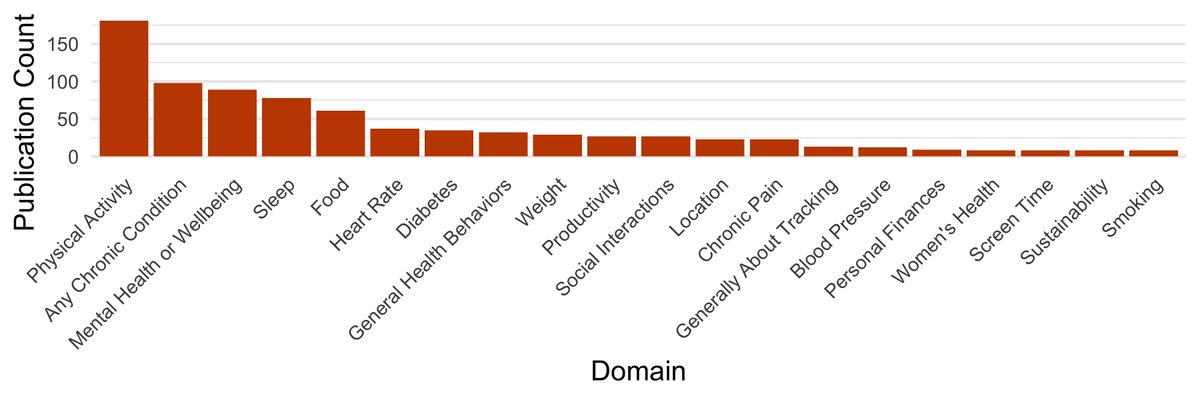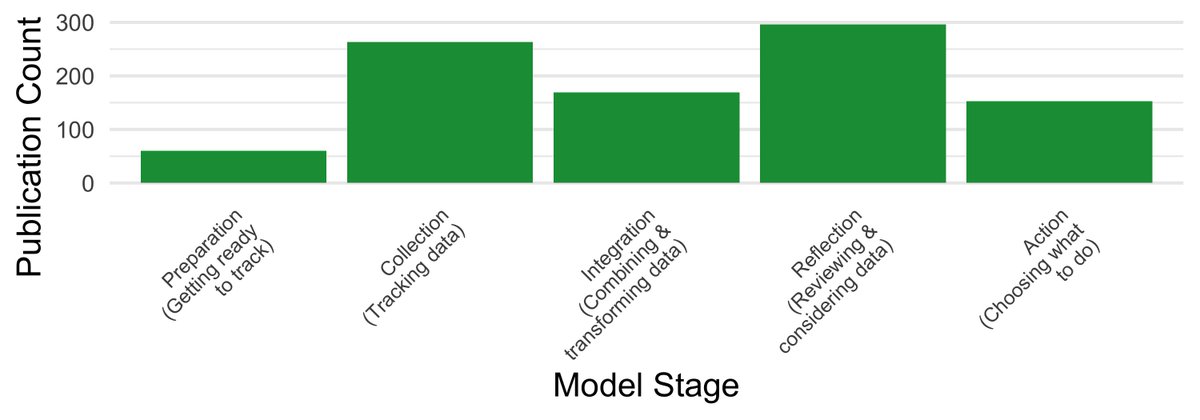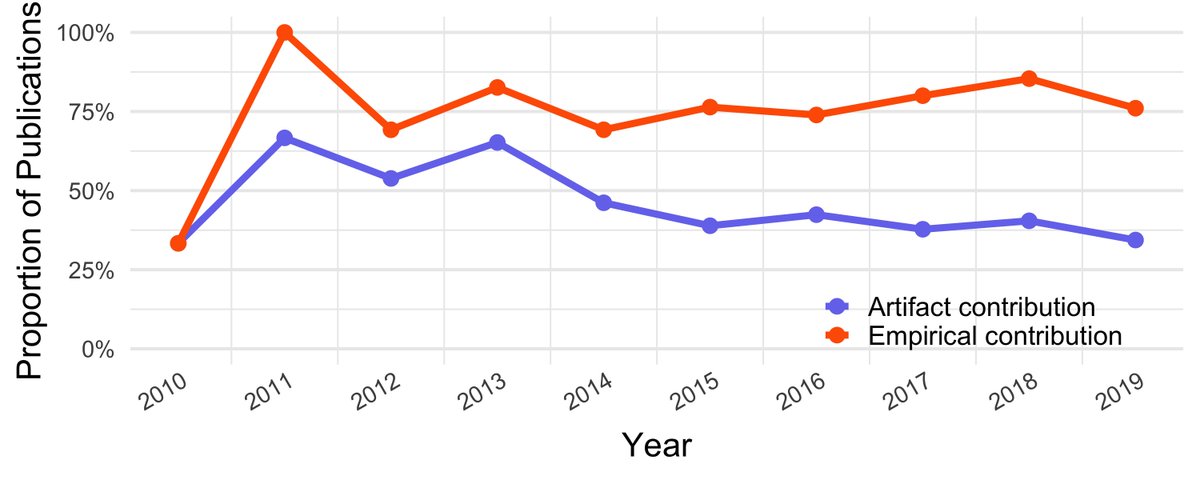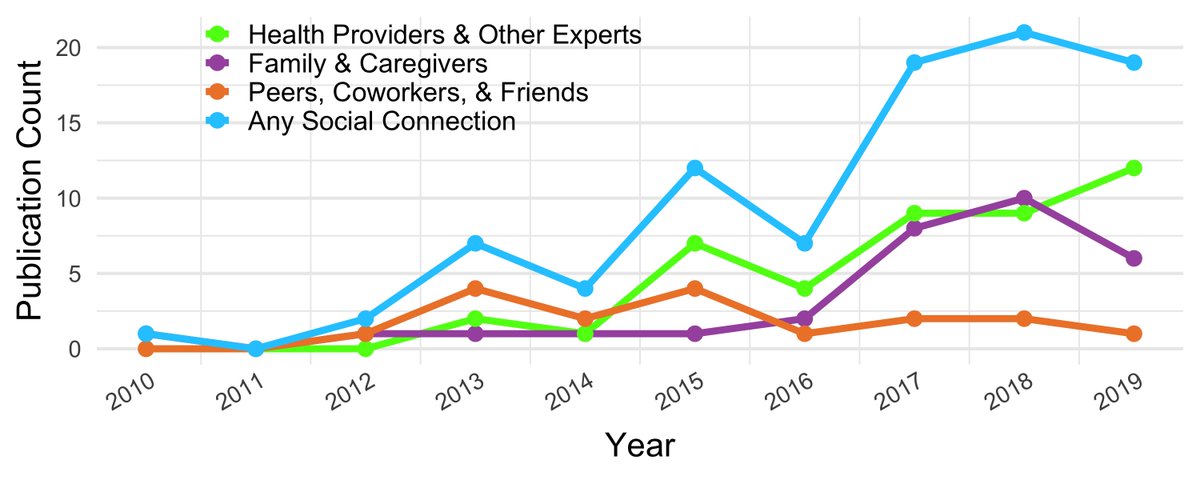Our upcoming #IMWUT @ubicomp paper maps areas of study in 523 personal informatics papers to point to opportunities for future research. Preprint available at https://depstein.net/assets/pubs/depstein_imwut20.pdf, and you can browse the papers we tagged at http://personal-informatics.depstein.net/ . A few key takeaways: (1/8)
1/3 of papers use physical activity as a case study, over twice any other domain. Exercise is convenient for evaluating design strategies like goal-setting or reflection, but we should examine how well they work in other domains and understand where they fall short. (2/8)
Literature has primarily aimed to understand and support people in collecting and reflecting on data. We argue that preparing to track and acting on data are understudied in HCI, with opportunity to address barriers before they persist and increase efficacy evaluations (3/8)
Although we know privacy and ethical concerns exist, we rarely engage with how organizations use or could use the data we are enabling collecting. As researchers, we can also promote participant's self-knowledge when deploying self-tracking systems for our own benefits. (4/8)
As the field has matured, we're developing fewer tools and increasingly studying commercial systems. While this is perhaps natural, it arguably restricts informing design. Building features within existing platforms and studying lower-fidelity prototypes could help. (5/8)
We're examining stakeholders beyond the person whose data is being tracked more, which better aligns with the people's daily experiences. But we could work more with experts like dieticians, coaches, and therapists to support the tracking problems they see in their care. (6/8)
It's not all bad news, our paper points to great published work on all of these topics we could model after. There's room for further conversation and nuance that a tweet thread can't capture. Looking forward to hearing other's thoughts on where the field should go. (7/8)
A *huge* thanks to coauthors Clara Caldeira, @mayaracfig, @Xi_Lu_HCI, @Luke_ms, @LucretiaW_, Jong Ho Lee, @YANGZILEE, Simran Ahuja, Qiuer Chen, Payam Dowlatyari, Sazeda Sultana, @eveikey, & Yunan Chen. Tagging and making sense of over 500 papers was a mammoth undertaking. (8/8)

 Read on Twitter
Read on Twitter





